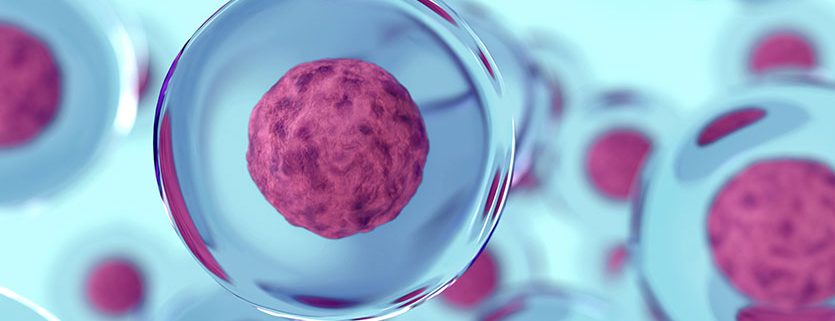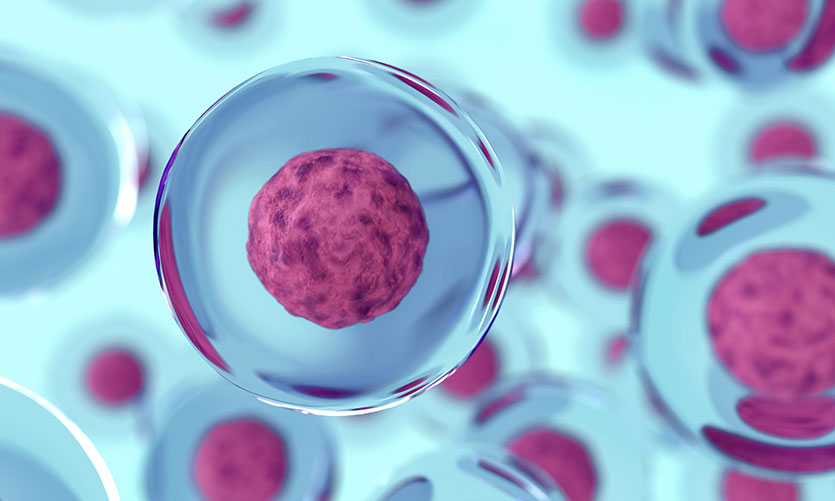Understand and Unleash Your Powerful Cellular Stress Responses
Your body may be about 60 percent water, but you’re 100-percent cells. They make up your whole body, but still act—and react—individually. That’s very apparent when it comes to stress. Individual cellular stress responses are very different than the way your whole body responds to a stressor.
You’re likely all too familiar with those bodily responses to psychological stress. Many people have an intimate knowledge of the tension, increased heart rate, and possible gastric gymnastics. But you might not be full acquainted with how your cells respond to stress—or even how cellular stress differs from everyday stress.
It’s time to better understand what your cells go through and how they react. And also come to grips with the role your decisions have and how you can use selective cellular stress to help support your overall health.
What Stresses Cells Out
One way to look at stress of any kind, is as something that upsets a delicate balance. In daily life, that means frustrating delays impacting your deadline or unexpected expenses upending the budget.
Your cells crave balance so much that maintaining homeostasis is their operating principle. A cellular stress response is triggered whenever cellular balance is thrown a bit out of whack or when the serenity of homeostasis is even threatened.
That’s why many cellular stressors are best described as environmental changes in or directly around the cell. And your cells are hard-wired to react to their environments. Some changes are good and necessary. It’s actually an essential part of how your body runs—from nutrient distribution to energy production and more. But some environmental changes are more worrisome to the cell than others.
Take the following list of most common cellular stressors, for instance:
- Temperature Increase: There’s a good reason your body sweats. It’s kicking on the evaporative cooler (your skin) to maintain a good operating temperature. Your cells thrive in a certain temperature range. Throw off that thermal balance with a little extra heat, and your cells start the stress-response processes you’ll read about momentarily.
- Exposure to Toxins: Cells are tiny pouches containing many chemical reactions. Any interruption to this chemistry—especially by toxins, but even by nutrients that may act like a toxin—throws a wrench into normal operation. That’s enough to trip the stress-response wire.
- Lack of Energy Resources: Your cells contain the machinery to manufacture energy from your diet. But if you fast or limit calories, cellular environmental conditions change enough to trigger a stress-response process called autophagy—more on that later.
- Oxidative Stress Accumulation: A certain amount of reactive oxygen species (ROS) are common in cells. They’re a byproduct of energy production in the cellular mitochondria. Too many of these particles floating around tips the balance and creates oxidative stress—and accompanying reactions—in your cells.
You are also a source of stress for your cells. Your lifestyle decisions determine a lot about the cellular environment. So, when you make a thousand different decisions—exposing yourself to toxins, deciding to adopt intermittent fasting, failing to stay hydrated, or consuming a high-fat diet—your cells may pay a stressful price.
And your daily and chronic stresses can impact your cells. That makes stress management and healthy habits key to keeping your cells calm and happy.
Equal and Opposite Reaction—Your Four Cellular Stress Responses
Most of the negatives of stress—at a cellular or macro level—come from the way your body responds. Consistently high levels of cortisol are correlated with chronic stress and account for some of the ways stress hampers your health. Your cellular stress responses can be just as harmful.
Let’s start with the worst news first: sometimes your cells’ response to stress is just to say “enough is enough” and die off in a process called apoptosis. This, obviously, is not always ideal. But it’s could actually be worse—after all, it’s a natural process and part of human development.
Apoptosis could even be described as a type of sacrifice. The process acts to hopefully avoid the more devastating cell death eventually caused by a stressful stimulus. That’s because it has less of an impact on surrounding cells. But stressing your cells to the point where they opt for apoptosis or succumb to the stress is still the worst-case-cellular-stress scenario.
Cell death may be necessary to destroy damaged cells. The good news, though, is there are other signals telling cells they should continue living.
One of the better signaling outcomes involves cell repair mechanisms. Stress can damage proteins by making them unfold—and DNA can even be harmed. The answer to impaired proteins? Signaling cells to release a different set of proteins. These helpers repair or contain the damage to help return the cell to normal.
Autophagy was mentioned above, specifically in connection to fasting. This important cellular stress response is used more for cleaning and recycling than repair. When proteins degrade, autophagy further disassembles them into component amino acids the cell can use again. Even though it translates literally to “self-eating,” autophagy is a natural and important part of maintaining optimal health. (Want to dive deeper into autophagy? Read more about cellular renewal processes.)
Adaptation is the final approach your cells typically takes to stress. Adapting, which start in the DNA, involves complex processes with several cellular pathways. It’s a lot to digest, but the end result is pretty simple and very positive—resistance and resilience.
Using Cellular Stress to Your Advantage
Your cells’ ability to adapt to or spark cellular-cleaning processes in response to low-level stressors creates an exciting opportunity. And it’s one you can capitalize on to support your cellular and overall health.
The most common way to take advantage of cellular stress resides in the realm of nutrition.
Intermittent fasting evangelists advocate longer periods of zero-calorie consumption partly due to ties with autophagy. Here’s how the logic for this conclusion flows: Research supports the connection between the cellular recycling process and caloric restriction or abstention. The benefits of autophagy for supporting and maintaining optimal cellular health are also well established. And, since cellular health plays a big role in overall wellness, that intentional stress becomes a boon instead of a burden.
Nutritional science has also uncovered the role some nutrients can play in strengthening your cells through stress. These molecules—mostly falling under the phytonutrient label—originate from plants, where they have protective effects. These same abilities help the phytonutrients act as a mild toxin, which activates beneficial cellular stress responses.
So, don’t just fear stress—use it to your advantage. Think of all this as exercise for your cells. Overcoming a small, controlled amount of stress strengthens and promotes resilience. And that’s another important way to help support your health.
References
https://www.livescience.com/20355-5-ways-cells-deal-stress.html
https://www.ncbi.nlm.nih.gov/pmc/articles/PMC4362434/
https://www.hindawi.com/journals/ijcb/2010/214074/
https://www.sciencedaily.com/releases/2016/02/160208083550.htm
https://pubmed.ncbi.nlm.nih.gov/30172870/














